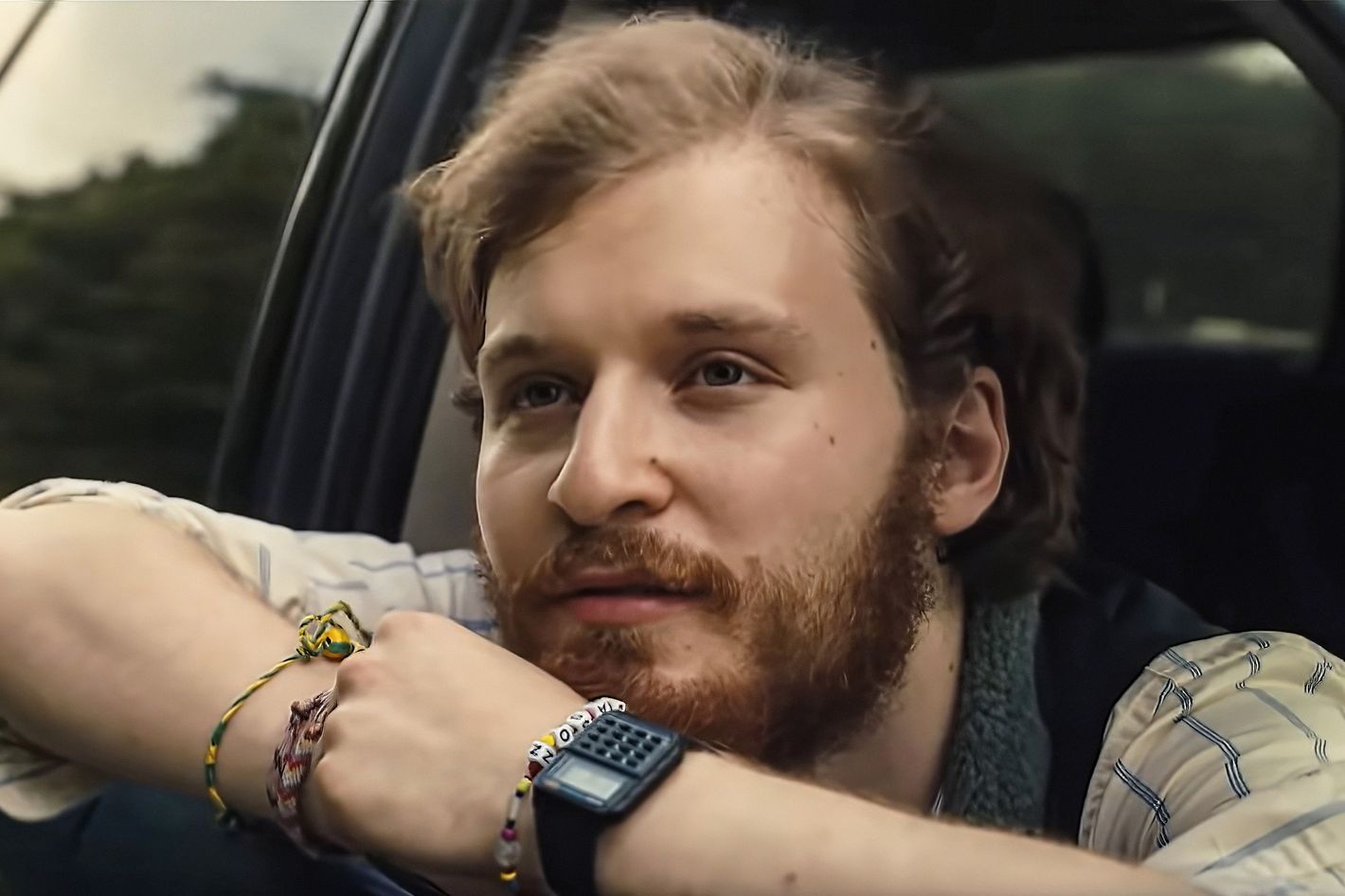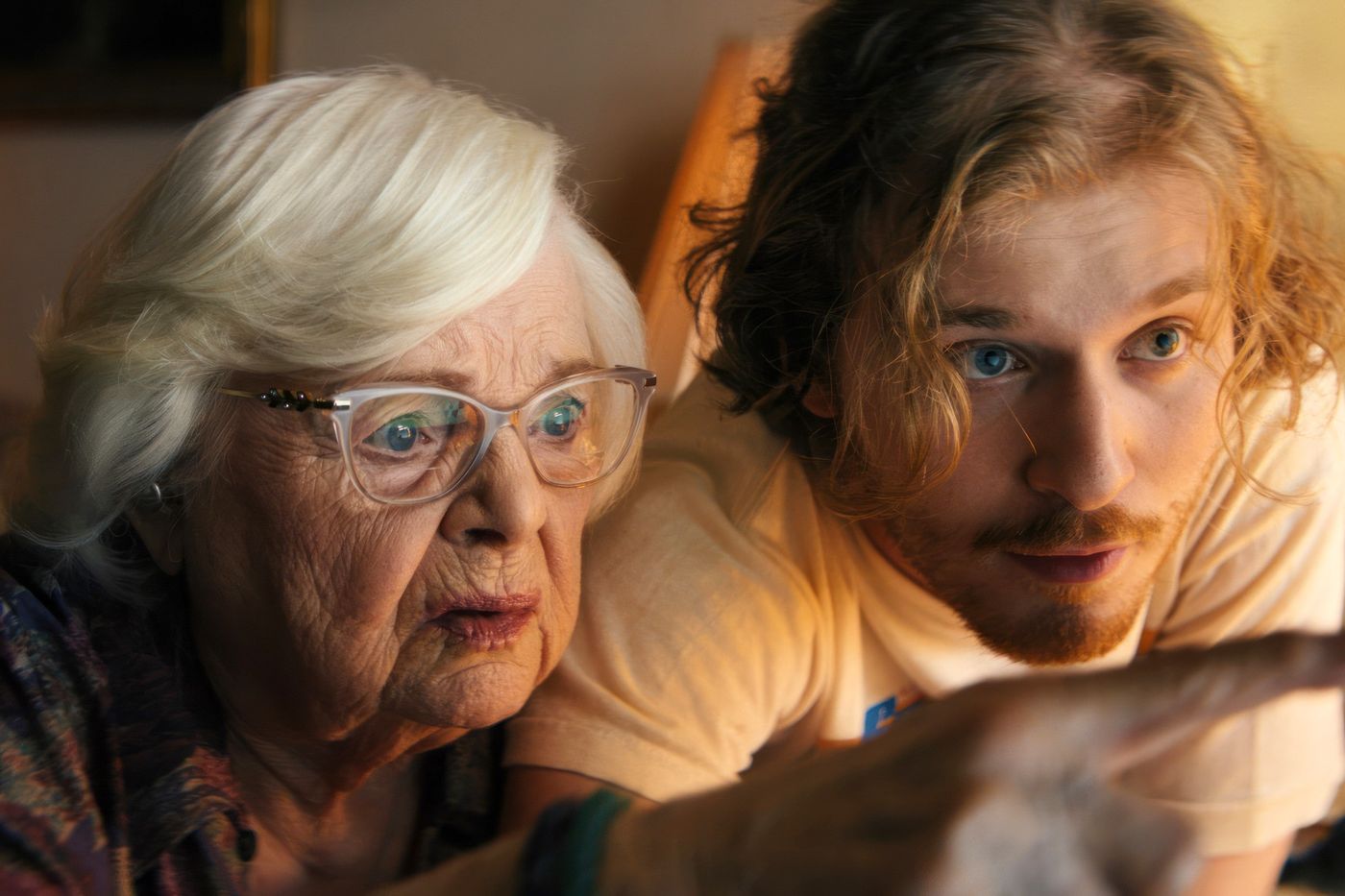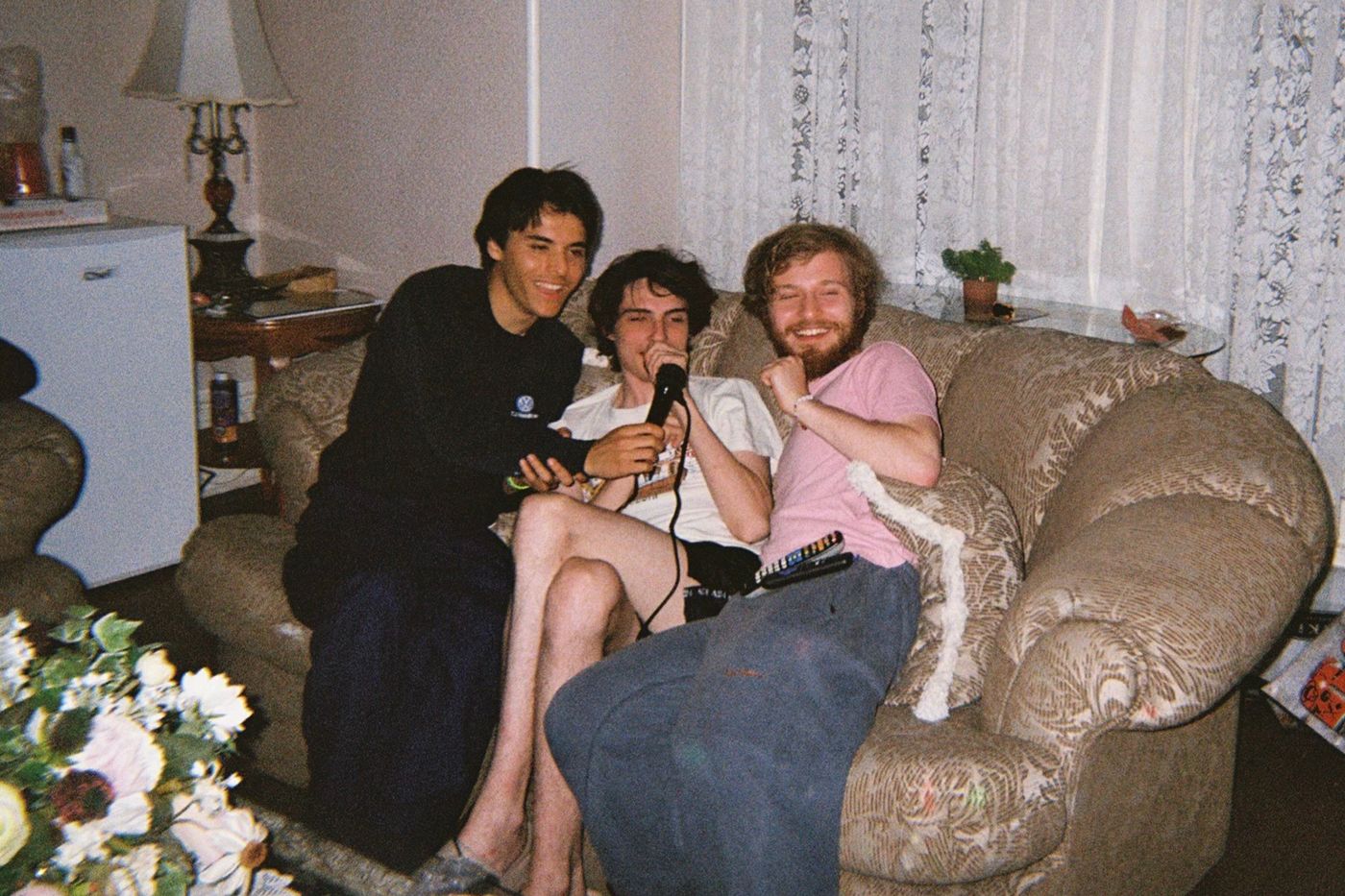

On Little West 12th Street underneath the High Line sits Hector’s, a Mexican-inflected diner that’s been there since 1949, a last remnant of the old Meatpacking District. “They filmed Taxi Driver in here,” enthused one of the restaurant’s fans, actor Fred Hechinger, on a sunny afternoon. Now Hector’s is across the street from the Standard Hotel and a Tesla dealership. Recently, Hechinger, who lives nearby, learned that the place was set to close at an indeterminate date in the future. “They seemed very relaxed about the whole thing, but I don’t want it to go away.”
Last year, Hechinger — to say it right, just think, “What the heck is happening in Germany” — became your favorite film critic’s favorite young character actor. In the span of only a couple of months, he popped up as June Squibb’s grandson in Thelma, a deranged Roman emperor in Gladiator II, and an employee of the titular school in Nickel Boys. When Hollywood looks at his toothy grin and cherubic features, it tends to see either a malevolent creep or an endearing dork, which is the role Hechinger plays in this month’s Hell of a Summer, a coming-of-age comedy hidden inside a summer-camp slasher flick. The film was directed by Stranger Things’s Finn Wolfhard and his friend Billy Bryk, who also co-star. It marks the 25-year-old’s first lead role in a movie, as well as his first time working under filmmakers younger than he is. “Sometimes we were referencing a Carpenter movie, and sometimes we were referencing a Vine,” he said.
On the subject of his first starring role, he was reminded of something Squibb often said on their Thelma press tour, which made hay out of the fact it was the nonagenarian’s first time carrying a movie. “She was like, ‘I don’t read scripts with that in mind.’ My brain doesn’t latch on to that.” The big difference between being a supporting player versus a lead, he said, was the responsibility toward the rest of the cast. “When you’re first on the call sheet, people look to you for guidance.”
Still, he admitted it was a shift from the roles he used to play, bit parts in films like Eighth Grade. “Starting out, it was really lovely,” he said. “When you come in for one day, it does feel like your job is just to be that person. There’s something beautiful in not having to think about anything outside of that. But I think that energy should be preserved in every role you play.”

Hechinger possesses that fundamental quality of a character actor: the ability to transform while also retaining a fundamental essence. For him, it’s a kind of awkward guilelessness, which movies can either exploit — in Hell of a Summer, he’s an aging lifer who still believes in the magic of summer camp, while his fellow counselors just want to drink and hook up — or undercut. He doesn’t mind the character-actor title, which he noted could probably apply to most of his favorite actors, guys like Altman regular Allen Garfield: “He played so many different kinds of people, in Nashville, and then in Putney Swope, or in The Conversation.” Was that the kind of actor he’d like to be? “When I was starting out, producers would be like, ‘Whose career do you want?’ I would always say Barbara Stanwyck.” This was half a joke. “I think the Hollywood machine can try and contain actors. They’ll look at you and try to put your demographic likeness into someone else. Like, ‘Do what he did.’ What’s exciting about them is they’re doing their own thing.” But he really did love Barbara Stanwyck: “She was so powerful, and so vulnerable. I never can catch her acting.”
Hechinger has said that he tries to find something to admire in every part he plays. Even Emperor Caracalla in Gladiator II? “I found him genuinely funny. Even in his sickness and raging syphilis, there’d be moments of great pith, those brief moments where he calls a spade a spade.” Maybe admire wasn’t the right word, he added. More that they exhibit qualities he’d never been able to express before, or simply wanted to dig into. Take his role in Nickel Boys as a seemingly harmless gofer who turns out to be capable of shocking violence. “He was someone who saw himself as this kind of aggrieved worker,” he said. “There was an easy nihilism in that. We’re all responsible in our own ways for letting things go, and clocking out. Like people you think are your friends, and then suddenly they’re supporting bombing places.”
Hechinger is a lifelong New Yorker. He was born at Mount Sinai, raised on the Upper West Side, and went to Saint Ann’s School in Brooklyn. “I’ve flirted with other places, and then after a couple of months I always come back to New York,” he said. As a 12-year-old, he got his foot in the door of the entertainment industry by working as a kid reporter for Scholastic. He became a regular on the junket circuit, where he discovered the adult journalists were genuinely competitive with him. “All these professionals in suits were fighting to get their five minutes. It weirdly made me feel taken seriously.” In high school he took improv classes at the Upright Citizens Brigade under his future White Lotus co-star Natasha Rothwell. His big break came in the first season of the HBO series, playing a phone-addled teen who eventually finds enlightenment. (Like his character, Hechinger was so taken with Hawaii that he decided to stay, sticking around the island for three months between filming and reshoots.) “He reminded me a little bit of a young Joaquin Phoenix,” says White Lotus casting director Meredith Tucker, who also cast Hechinger in Eighth Grade. “There’s something off, but fascinating, and really funny. He’s going to rule Hollywood one day.”
Hechinger doesn’t have family support to fall back on, which means he works a lot. One upside of this is that he’s grown out of his earlier film-set anxiety. “Before, I was petrified that I could ruin the whole thing. There’s still that existential fear that it could all end, but over the years you learn to trust that if you give it enough focus, your choices will arrive at something intentional, or at least worth sharing.” He isn’t the kind of actor who has a master plan for his career, but he does hope to star in a rom-com one day, or a musical. He’s been quietly taking singing lessons and loves to freestyle dance. “It offsets the cerebral in a really wonderful way.”

Hell of a Summer contains elements of the occult, so after lunch Hechinger proposed visiting a psychic he’d spotted a few blocks away. Neither of us had been to one before, and it sounded fun. On the walk over, he recalled how his co-star Matthew Finlan, an amateur spirit hunter who hosts a web series called Ghosting, coached the rest of the cast through a Ouija scene. “He was like, ‘If we’re going to do this, you have to do it right. Just be aware you’re opening up a portal.’”
The psychic, in a small storefront on West 11th Street, did not seem like an obvious portal to the spirit world. Nevertheless, Hechinger opted for what the proprietors called “the full shmear” — palms and chakras. We’d hoped to get our readings together, but this went against protocol. Instead the psychics, who turned out to be mother and daughter, split us up: Hechinger in the back room, me in the front. Donna Summer’s “MacArthur Park” played on the stereo, perhaps to protect this sacred act of communing with the universal energy from being sullied by eavesdropping.
My psychic told me that I would have a long life. In a past life I had been a gifted artist, but I suffered so much heartbreak that I took my own life. Overlooking the wedding band on my finger, she told me that in 2029 I was going to meet someone. We’d start as friends for two years, but eventually this would be the person I’d settle down with. In a way, this heartened me — she really was reading my palm, not anything else. When Hechinger emerged, we learned the price we thought was for both of us was actually per person, which we duly paid over Venmo. We left with the vague sense of being swindled. “I guess what you can say is we paid $60 to answer our curiosity, which is a lot,” he said. “But we did get something out of it. We got some sort of answer.”
Outside, we compared notes. “You got a past life? I did not get a past life,” Hechinger said. His psychic had told him his lucky colors and lucky numbers, which on her urging he did not divulge to me. “But I think I can say this: She told me to buy three yellow roses and have them bloom this evening.” If he did, his innermost wish — which, again, he could not share — would come true. She also told him that his third eye was closed. “Ideally I think it’s good to be open. I asked how to open it, and I think she implied that would require more money. So I might figure that one out on my own.”
He looked on the bright side. “It still stirs something up. It’s interesting to have a moment in your day to be like, What do I actually wish for?” He was reminded of an old Denis Johnson line about squirreling away in your soul certain odd moments when the mystery winks at you. “I do think there is mystery and it is probably winking at all times,” he said. “I think that’s an impetus for some of the curiosity. Like, Let me see what happens out of this. And sometimes you’re like, Eh, I didn’t come up with much. But who knows? Some things you have to experience before you know.” He laughed. “You know what’s funny? I think I really will buy three yellow roses.”

Latest News
For Sale! 2016 Sea Ray 350 Sundancer – $180,000
Reel Deal Yacht is pleased to feature a meticulously maintained 2016 Sea...
Exploring PS’s Exclusive Private Terminals at Miami and Dallas Airports
The Rise of PS: A New Era in Pre-Flight Luxury In the...
Top 20 Most Affordable and 20 Most Expensive Cars to Own
The Cost of Driving: A Comprehensive Look at the Cheapest and Most...
New Mixed-Use Development Set to Launch in Miami Design District
Tower 91: A New Era for Miami’s Design District On May 16,...
Custom Line Unveils Four Bespoke Superyachts in Just Two Months
© Copyright – autocontently.com













